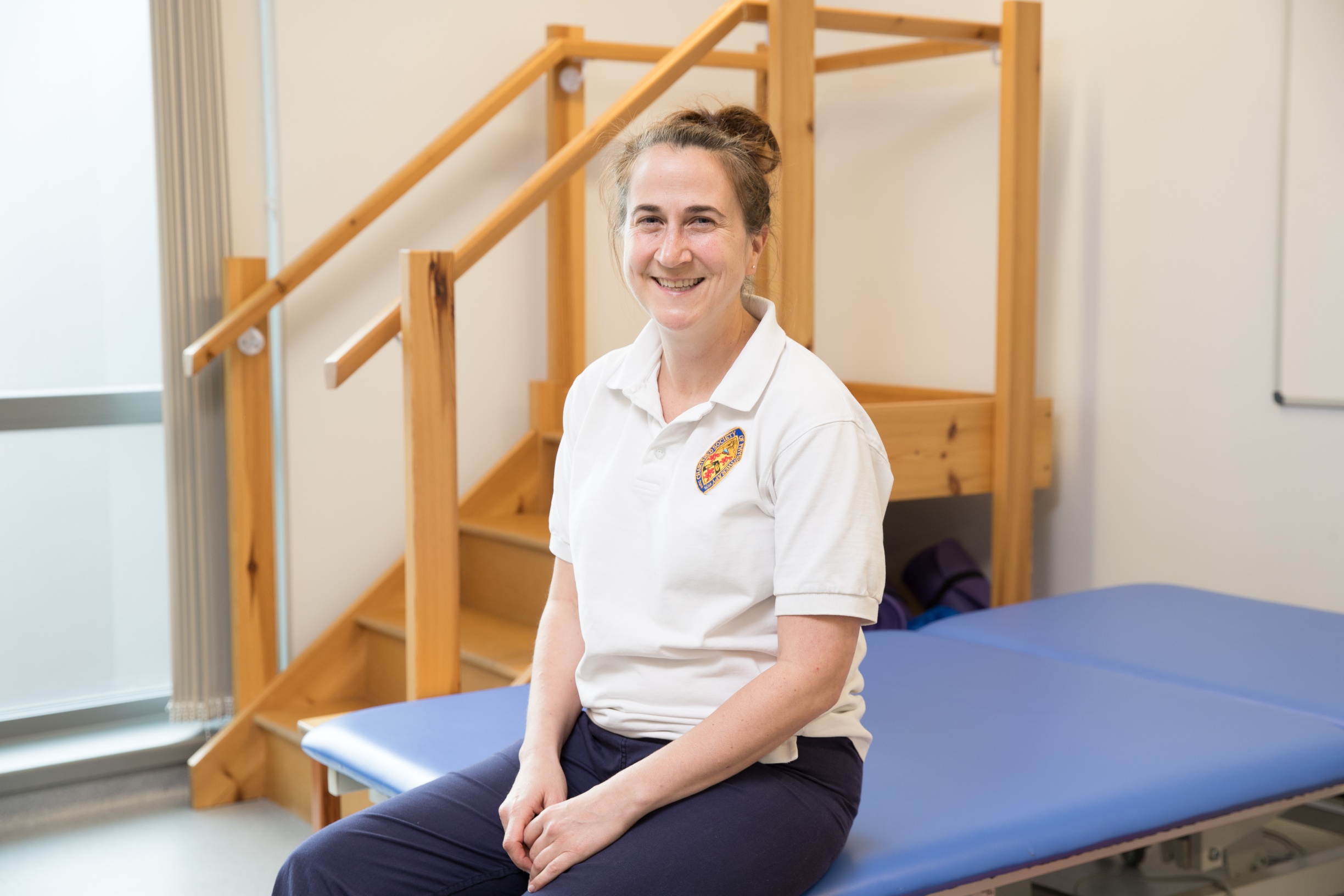Case studies
Paula | Advanced Physiotherapist
Regional Neurosciences Centre
"However mild or severe their injuries are, knowing you have the ability to help someone become as independent as they possibly can is a rewarding and humbling experience."
I work in a critical care unit that specialises in neurosciences and major trauma. This means that although I will treat some patients who are medically unwell, I primarily provide physiotherapy to people who have mild to severe brain injuries and/or complex musculoskeletal injuries.
The challenges associated with this can be great and variable, and as you can imagine, it is an intense and emotional place to work. Laughter and tears exist side by side so being able to be open and honest with your colleagues is really important.
I am also part of the Schwartz Round working group, where I not only get to hear powerful narratives from my colleagues across the trust, but have the opportunity to talk to people I would never normally get the chance to meet. It's a fascinating insight into what happens in other areas of the organisation.
As a senior member of the department I also have several other non-clinical responsibilities.
What do you love about your job?
Working in a critical care unit specialising in neurosciences and major trauma means that our patients have usually sustained life-changing injuries. Sometimes they can be in a coma for several weeks.
Nothing beats that feeling of seeing someone wake up and start to move against the odds. Then that first sit up, that first stand, that first step. However mild or severe their injuries are, knowing you have the ability to help someone become as independent as they possibly can is a rewarding and humbling experience.
I also love the fact that everyone patient is different and so will react in a different way to rehab. There is no set protocol, particularly when it comes to neurophysio.
The only thing holding you back is your own imagination. How great is that? I get to sing, dance, draw, help people get washed and dressed in their own clothes and go outside to feel the sun on their skin, all in the name of rehab! .
What has been your proudest moment so far?
This is tricky! I'm proud of lots of things - treatments that went well, patients who have recovered, the great relationship that I have with my MDT colleagues, positive changes I have influenced and implemented, to name but a few.
Being chosen to deploy to Gaza and then Nepal to support colleagues to develop their brain and spinal injury rehab skills and contribute to the UK's response to each country's request for help following a period of catastrophic disaster was a particularly proud moment. I love that I can pass on my skills to my colleagues both abroad but also within my organisation.
Yes, of course a part of me wants to be the only person who can do my job, but when you work alongside other people or set up specific teaching sessions with other teams and see people gain confidence in their own capability and carry out meaningful and successful treatments with their patients, that makes me feel proud.
Any really special moments?
There are a few notable events! As far as I am aware, I was the first person in the UK to take a ventilated patient into the hydrotherapy pool. Exciting then, but we don't give it a second thought now, it's just one of the treatment options that we have available to us.
Similarly, helping patients who need to be on a ventilator to assist their breathing, but have strong arms and legs, to get out of bed and go for a walk, pushing their own ventilator, always raises a few eye brows.
And it was a pleasure to take a patient who had been extremely unwell and was recovering, but still needing a ventilator, to watch Newcastle United play, and a privilege to help a patient with complications from their cancer treatment to take some steps towards a sponsored walk they had organised but were too ill to take part in.
I also particularly remember taking a long-stay patient outside for the first time and seeing their eye brows wriggle in appreciation of the fresh air and sunlight.
However, my biggest epiphany occurred when I was scrolling through social media and could see how proud some of my colleagues up and down the country were of the physio treatment that they were able to deliver to their critical care patients, and it made me realise that their extra-ordinary is our everyday. How special is that?
What qualifications do you need to become a physiotherapist?
The traditional route to becoming a physiotherapist is to achieve at least 5 GCSEs and 3 A levels and complete a full-time undergraduate degree (3 years in England and Wales, 4 years in Scotland). If you have a relevant degree, you can complete a 2 year Masters course.
More recently there is an option to apply for a degree apprenticeship, which gives you the chance to earn a living while completing your qualification.
Importantly, each university sets their own entry requirements, so you should check with them directly before submitting an application.


